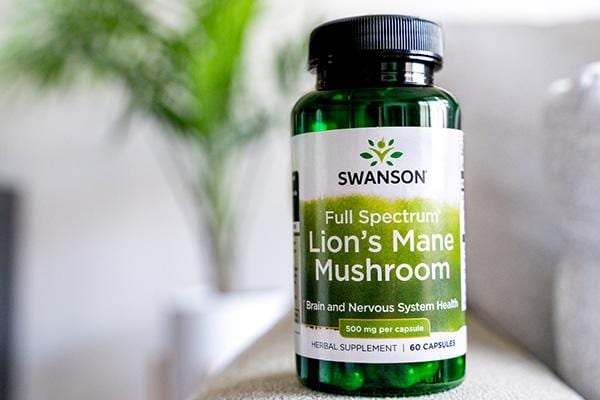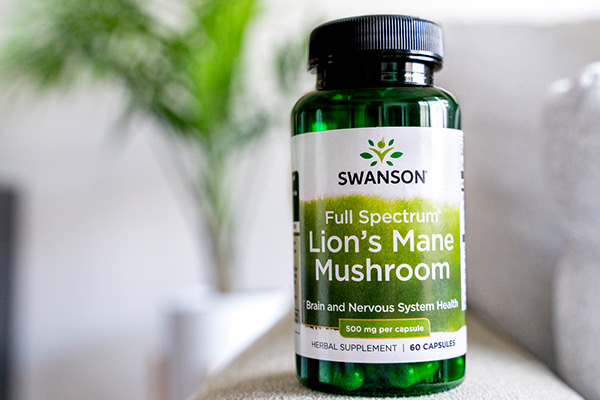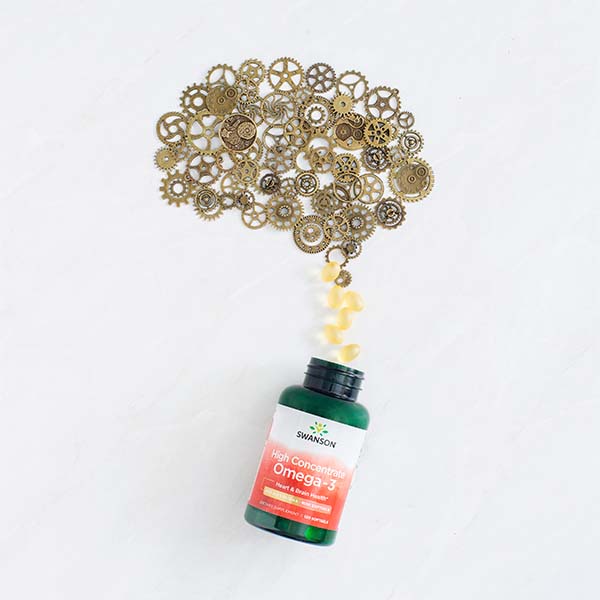Top Four Benefits of Lion's Mane
When you hear a name like lion’s mane, your first thought may be Mufasa, not mushrooms. While the king of the jungle is definitely top dog (or cat) of the animal kingdom, its fungi counterpart is an underfoot force to be reckoned with.
So, in the supplement world, what exactly is lion’s mane? What can it do to benefit our health?
Let’s do some digging on this fierce fungus.
What is Lion’s Mane Mushroom?
Lion’s mane gets its luxurious name from its long, shaggy features that resemble the mane of a lion. Along with its regal title, lion’s mane also has a pretty royal lineage. It’s part of the shiitake family which is known as the “king of the mushrooms.”
Along with some other fun names like hedgehog mushroom and yamabushitake, lion’s mane is also referred to as Hericium erinaceus for those who especially love Latin.
This furry mushroom is usually found on dead broadleaf trees and can be used for both food and for health benefits such as promoting restful sleep.1 But what else can it do for us?
Benefits of Lion's Mane
Lion’s mane packs a lot of power under its furry frame and can provide an array of clinically studied health benefits.
Here’s a quick list to just name a few of them:

Mood Support
This mushroom is full of good vibes and may help you maintain a sense of calm while also remaining alert. One study on a small group of women showed that eating lion’s mane for a month helped promote relaxation and tranquility while also providing nutritional support to cope with everyday stress and tension.2
Lion’s mane extract contains an ingredient called amycenone, which has the potential to reduce occasional sad or anxious feelings and support positive emotional well-being.3
Cognition
The hericenone and erinacine compounds that are found in lion’s mane may also contribute to brain and nerve cell health.4 A study on the mushroom showed that it may promote healthy cognitive function like memory.
It's also potentially associated with other brain benefits such as promoting optimal neurological health by promoting the synthesis of a neurotrophic protein called nerve growth factor (NGF). Neuroscientists have used studies to show that NGF help neurons grow for brain health maintenance.13, 14
Digestion
As far as some internal improvements such as enjoying meals and not suffering for it later, there may also be some GI benefits from this mushroom. Lion’s mane may be linked to digestive health. Not only could it support gastrointestinal health, but it's thought to support immunity due to the connection between the digestive system and immune system in the body.7
Skin
Animal studies on rats have shown that lion’s mane has the potential to promote wound healing on the skin. More studies, especially in humans, are necessary to determine the exact mechanism.8
Other Benefits
Additional benefits of lion's mane mushroom may include easier weight management, protection against oxidative stress caused by free radicals and promoting general well-being.9,10,11
This all-around mighty mushroom can be a great supplement in many forms and flavors for different groups of people.
How to Get the Benefits of Lion’s Mane?
Since lion’s mane can be consumed raw, there are a lot of great ways to incorporate it in your daily routine. If you’re good with its texture and taste, you can eat it raw or cook it. There are lion's mane powders available to mix into smoothies, or it can also be dried and steeped into tea if you’re looking for a relaxing end to a long day.12
With so many ways for this mushroom to be prepared and consumed, it’s much easier to sneak this snack into your diet.
If you’re not a fan of the fuzzy texture or would rather not include it in your meal plan, there are also lion’s mane capsules available that provide an array of clinically studied health benefits. This is a quick and simple method to really supplement your diet.
Regardless of how you take lion’s mane mushroom, there’s a form that can fit into your daily routine so that you can enjoy the roaring health benefits and feel like the king (or queen!) of the jungle.
You be well, now.
Swanson
*These statements have not been evaluated by the Food and Drug Administration. These products are not intended to diagnose, treat, cure, or prevent any disease.

About Dr. Christopher Oseh
Christopher Oseh, MD, is a trained primary care physician leveraging almost a decade of clinical experience managing and counseling patients toward better health through positive lifestyle changes. He has a strong track record of treating and co-managing individuals with chronic illnesses.
Sources:
- Spelman, K. et al. (2017). Research Gate. 6 (1),19-26. See source
- Nagano M, et al. Biomed Res. 2010 Aug;31(4):231-7. Read source
- Yao W., et al. Pharmacol Biochem Behav. 2015 Sep;136:7-12. Read source
- Lai PL., et al. Int J Med Mushrooms. 2013;15(6):539-54. Read source
- Mori K., et al. Phytother Res. 2009 Mar;23(3):367-72.. Read source
- Mori K., et al. Biol Pharm Bull. 2008 Sep;31(9):1727-32. Read source
- Diling, C., et al. (2017). Oncotarget, 8(49), 85838–85857. Read source
- Abdulla MA., et al. Int J Med Mushrooms. 2011;13(1):33-9. Read source
- Mori K., et al. Int J Med Mushrooms. 2015;17(7):609-18. Read source
- Qin M., Int J Med Mushrooms. 2016;18(3):227-34. Read source
- Valverde ME., et al. Int J Microbiol. 2015;2015:376387. Read source
- Julson, E. 9 Health Benefits of Lion's Mane Mushroom. HealthLine. Read source
- Lai PL., et al. Int J Med Mushrooms. 2013;15(6):539-54. Read source
- Montalcini, R. (1996). Trends in Neurosciences. 19 (11), 514-520. Read source
- Docherty, S., et al. (2023). Nutrients, 15(22), 4842. Read source




